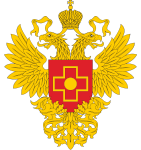
This article is an open access article distributed under the terms and conditions of the Creative Commons Attribution license (CC BY).
ORIGINAL RESEARCH
Dynamics of humoral immunity to SARS-CoV-2 in the professionally homogeneous group of people over a two-year period of COVID-19 outbreak
State Research Institute of Biological Instrumentation of the Federal Medical Biological Agency, Moscow, Russia
Correspondence should be addressed: Vera G. Pomelova
Volokolamskoe shosse, 75, corp. 1, Moscow, 125424, Russia; ur.neercsonummi@avolemop.v
Acknowledgements: we would like to thank staff members of the State Research Institute of Biological Instrumentation: Kanaeva TA for carrying out immunochipbased analysis, Balaban AS for antigen printing with nanoplotter and immunochip preparation for analysis, Stadnik OB for management of the serum samples acquisition and testing using commercially available immunoassay kit.
Author contribution: Pomelova VG — concept, experimental design, manuscript writing; Bychenkova TA — management of immunochip-based immunochemistry studies, data processing; Bekman NI — statistical analysis, preparation of illustrations; Osin NS — providing technical assistance, data analysis and discussion, manuscript editing; Ishkov YuN, Styazhkin KK — data analysis and discussion, manuscript editing.
Compliance with ethical standards: the study was approved by the Ethics Committee of the State Research Institute of Biological Instrumentation (protocol № 4 dated June 09, 2021). The informed consent was submitted by all subjects.
It is important to control the levels of specific IgG against SARS-CoV-2 to ensure the timely monitoring of immunity in patients with COVID-19. Yet it is unclear what antibody levels protect against new infection and how long the protection is maintained. The study was aimed to assess the dynamic changes in the levels of IgG against SARS-CoV-2 by the two-year controlled observation. Healthy individuals (n = 70), COVID-19 survivors (n = 42), and people vaccinated with Sputnik V (n = 43) were enrolled. They were followed-up from April 2020 to April 2022. Serum IgG levels were defined (n = 312) using immunochip and the commercially available test system. Significance of differences was estimated using the Mann–Whitney U test for р ≤ 0.05. IgG levels in the disease survivors (median 97.1; 95% CI: 80–162 BAU/mL) and vaccinated individuals (103.1; 78–139 BAU/mL) were significantly higher than in healthy people (4.3; 4.1–4.5 BAU/mL). Intensity of immune response significantly increased after vaccination of the disease survivors (up to 1023; 657–1191 BAU/mL) or administration of booster dose to vaccinated individuals (413; 213–545 BAU/mL). In elderly convalescents (60+), IgG levels were significantly higher, and in vaccinated people these were significantly lower, than in people under the age of 60. IgG levels decreased faster in vaccinated individuals (after 3–4 months), than in the disease survivors, and stabilized at <100 BAU/mL in 60% of subjects within 5–9 months. Thus, intensity and duration of immune response in COVID-19 survivors and vaccinated people vary significantly depending on age, observation period, and additional vaccinations/revaccinations. Three cases of infection after full vaccination were reported over the entire follow-up period, including infection in a patient having a history of the disease and subsequent vaccination.
Keywords: IgG, COVID-19, SARS-CoV-2, patients, dynamics of immune response, age, Sputnik V vaccine, immunochip